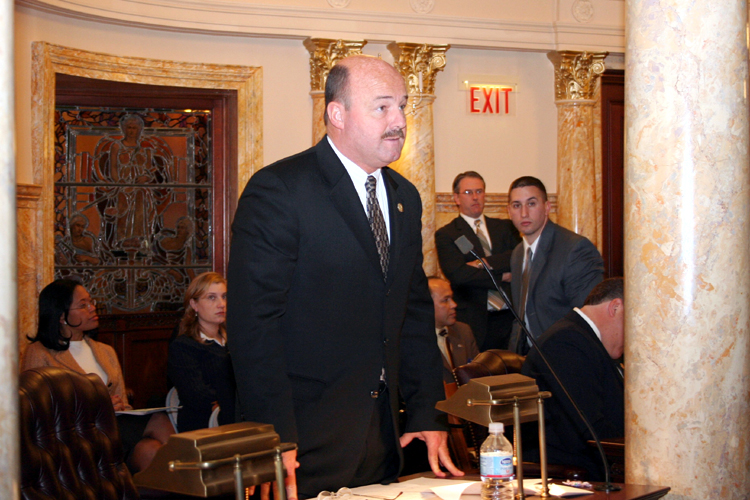
Legislation Would Ensure Continuation of Free Assistance Line for Returning Soldiers
TRENTON – Senator Fred Madden has introduced legislation that would ensure the continuation of a toll-free mental health helpline established to assist New Jersey’s soldiers once they return home from the battlefield.
The University of Medicine and Dentistry of New Jersey (UMDNJ) first partnered with the state’s Department of Military and Veterans Affairs (DMAVA) five years ago to create the “Vet-2-Vet” program, which last year managed more than 3,200 cases. But the program is only funded by the agencies on a year-to-year basis – Madden says the state needs to ensure the program is a permanent help to New Jersey’s veterans.
“Vet-2-Vet has already proven itself invaluable in helping our returning troops deal with the mental scars of war and to reintegrate themselves into civilian life,” said Madden (D-Camden/Gloucester). “But we just can’t hope that UMDNJ and the Department will somehow find a way to keep the helpline open. We need to make Vet-2-Vet a permanent source of help for our veterans.”
Madden’s legislation would give the Vet-2-Vet program permanency in state statute, as opposed to its current year-to-year existence.
Modeled on the successful Cop-2-Cop program that helps police officers statewide deal with the stress of life in the line of fire, the 24/7, toll-free and confidential Vet-2-Vet helpline is an early intervention program for returning soldiers suffering from psychological or emotional stress.
Cop-2-Cop was created by legislation in 1998 and is the only crisis intervention hotline of its kind certified by the American Association of Suicidology. Madden was a sponsor of a 2006 state law that expanded the scope of counseling the program could provide.
Vet-2-Vet trains combat veterans to serve as volunteer peer counselors since they not only can best understand the strains other veterans may feel upon returning home, but also because many veterans may feel most comfortable knowing another veteran is on the other end of the phone.
“For some returning soldiers, the only person they may feel comfortable talking with about their problems is another soldier,” said Madden. “These are returning veterans who may feel that even their own family and friends do not and cannot fully understand exactly what’s going on in their heads. These are the veterans we need to ensure aren’t overlooked – and without a program like Vet-2-Vet they might never step forward to get help.”
Most Vet-2-Vet callers are soldiers who served in Iraq or Afghanistan and who are dealing with a variety of mental health issues, including anxiety, depression, aggression, post-traumatic stress disorder and thoughts of suicide. Other are under stress simply from trying to reintegrate back into their pre-wartime lives.
Since the establishment of the Vet-2-Vet helpline five years ago, there have been no recorded suicides among New Jersey’s National Guard troops deployed to Iraq or Afghanistan.
“The simple fact that no family of a New Jersey National Guard soldier has lost their loved one to suicide is itself a testament to the importance of Vet-2-Vet,” said Madden. “Making this program permanent is the right thing to do for our veterans and their families.”
The bill will be referred to the Senate Military and Veterans Committee.


